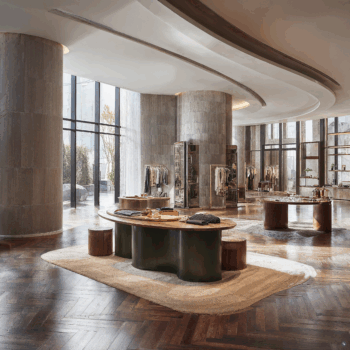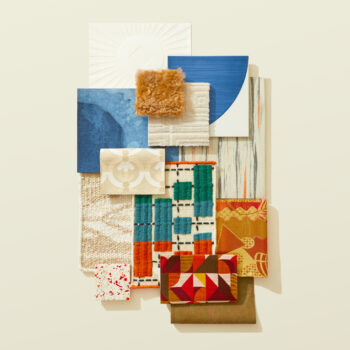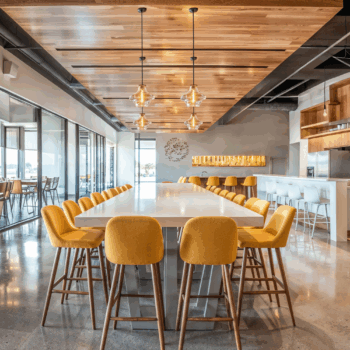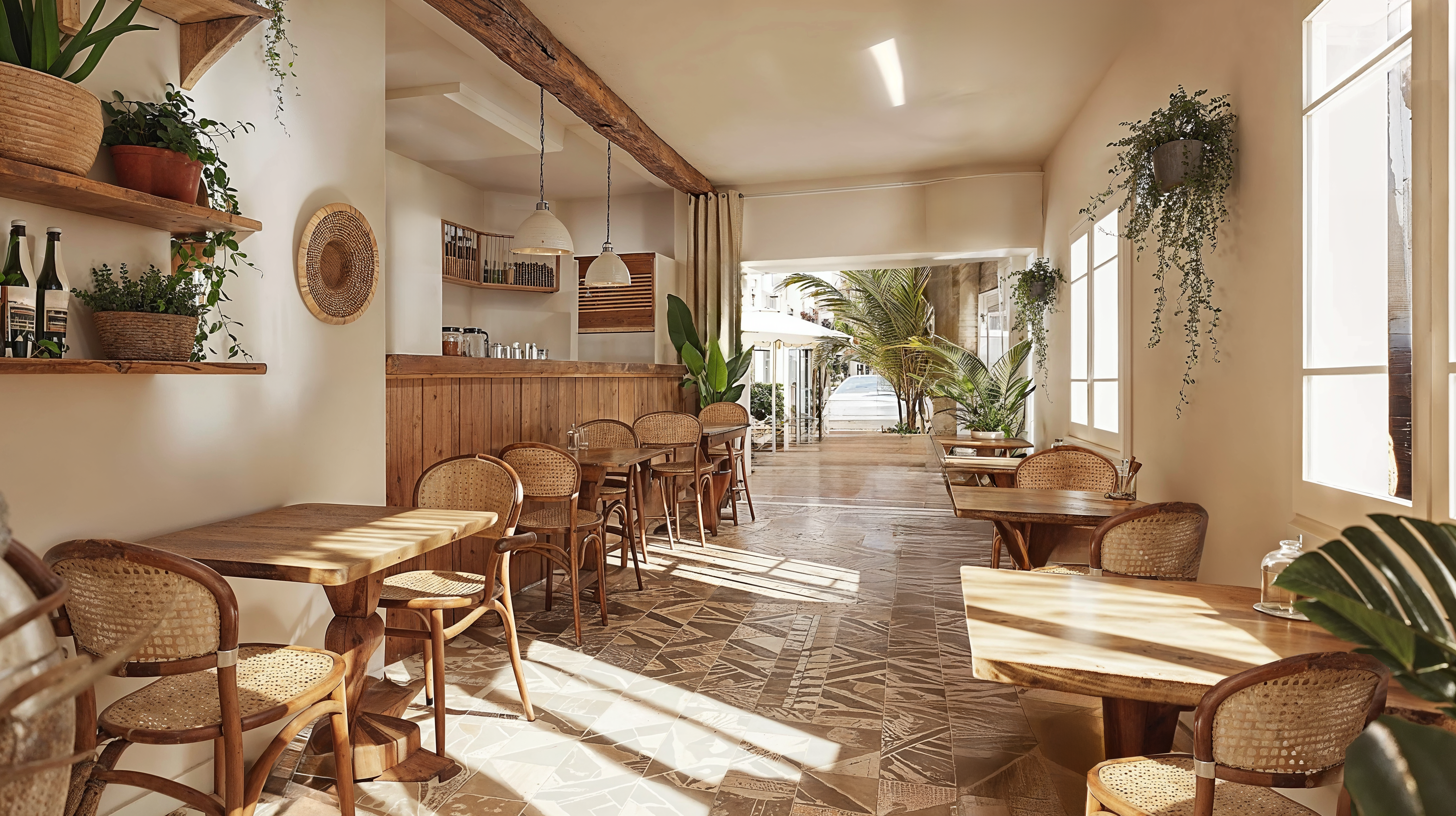
Mediterranean design embodies warmth, elegance, and a timeless connection to nature. Rooted in the architectural and cultural traditions of Southern Europe, this style evokes the sun-drenched charm of coastal living. Defined by its earthy materials, harmonious colors, and seamless indoor-outdoor integration, Mediterranean design offers a serene yet sophisticated aesthetic for a wide range of spaces.
Defining Features of Mediterranean Design
1. Earthy Materials and Textures
Stone, terracotta, wood, and textured plaster lend authenticity and rustic charm.
2. Warm and Cool Color Balance
Earthy tones like beige and terracotta blend with crisp whites, deep blues, and seafoam greens, echoing coastal landscapes.
3. Architectural Features
Arched doorways, vaulted ceilings, and open layouts create flow and a sense of grandeur.
4. Decorative Details
Wrought iron accents, vibrant mosaics, and hand-painted tiles add artistry and vibrant character.
5. Indoor-Outdoor Synergy
Large windows, courtyards, and terraces emphasize natural light and outdoor beauty.
This design style marries rich traditions with functional elegance, making it adaptable for both residential and commercial settings.
Bringing Mediterranean Design into Modern Spaces
Dental Offices
Mediterranean design’s soothing tones and natural materials create a calming atmosphere for patients. Subtle touches like arched partitions, mosaic tile backsplashes, and wooden accents add warmth without sacrificing functionality.
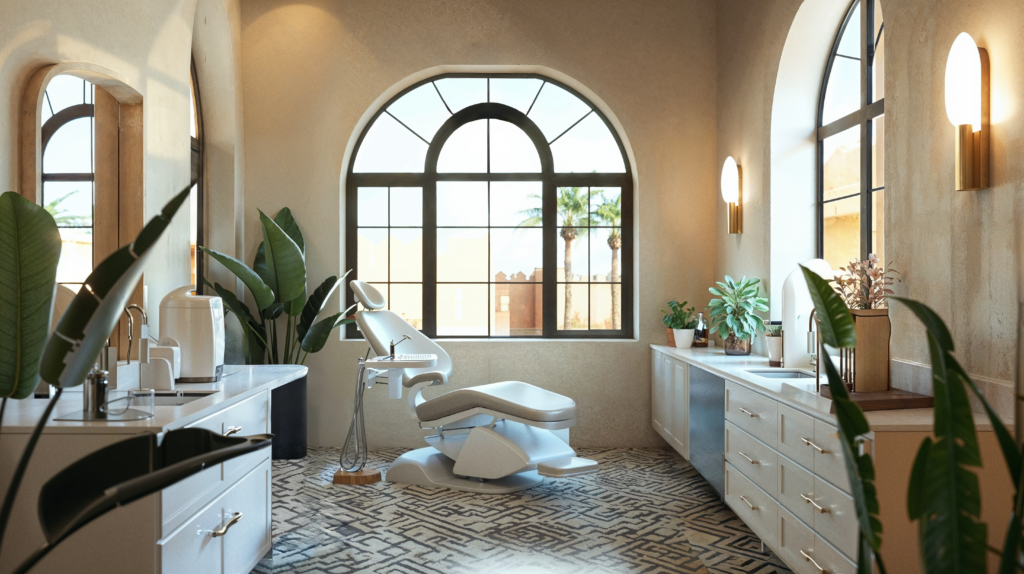
Workplace Meeting Rooms
Create productive yet inviting meeting spaces with textured plaster walls, muted earth tones, and decorative pendant lighting. Curved architectural elements soften the look, balancing professionalism with comfort.
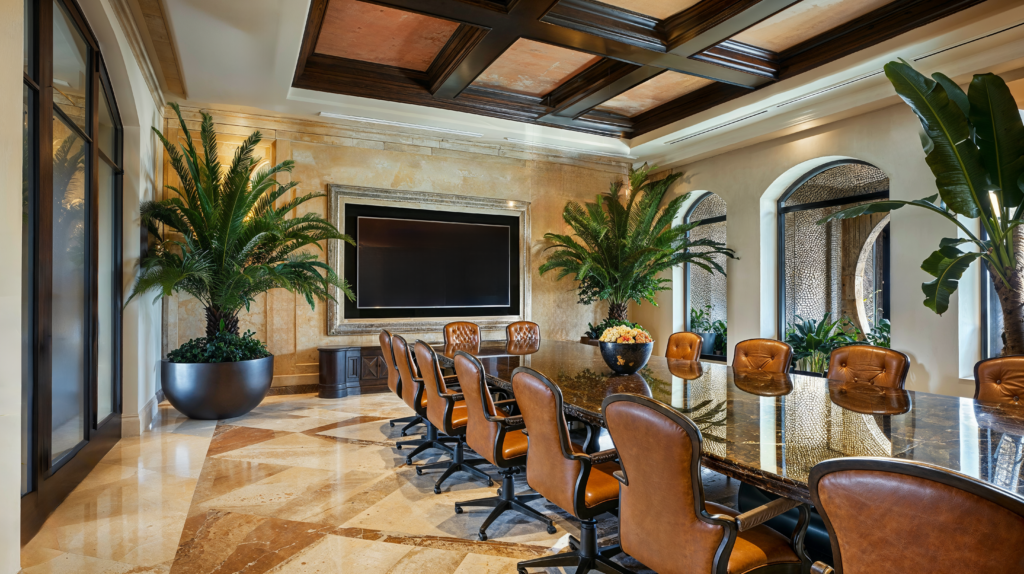
University Art Studios
Art studios benefit from the artisanal essence of Mediterranean design. Wood and stone floors and abundant natural light provide inspiration, while colorful tiles foster creativity in a grounded and invigorating environment.
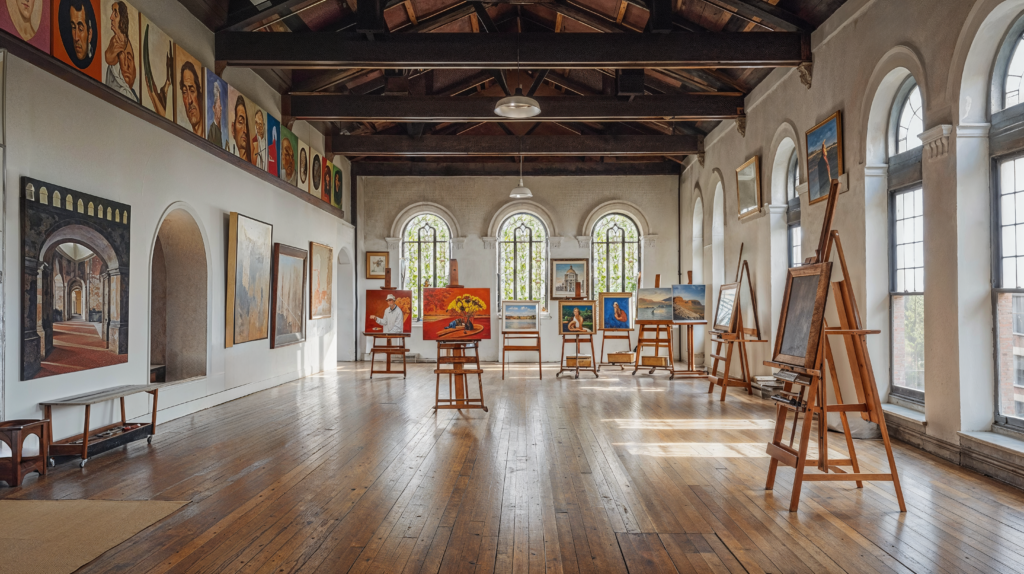
Bistros
Terracotta floors, wooden furniture, and wrought iron fixtures evoke the essence of alfresco coastal dining. Lush greenery and vibrant mosaics enhance the ambiance, creating spaces perfect for socializing.
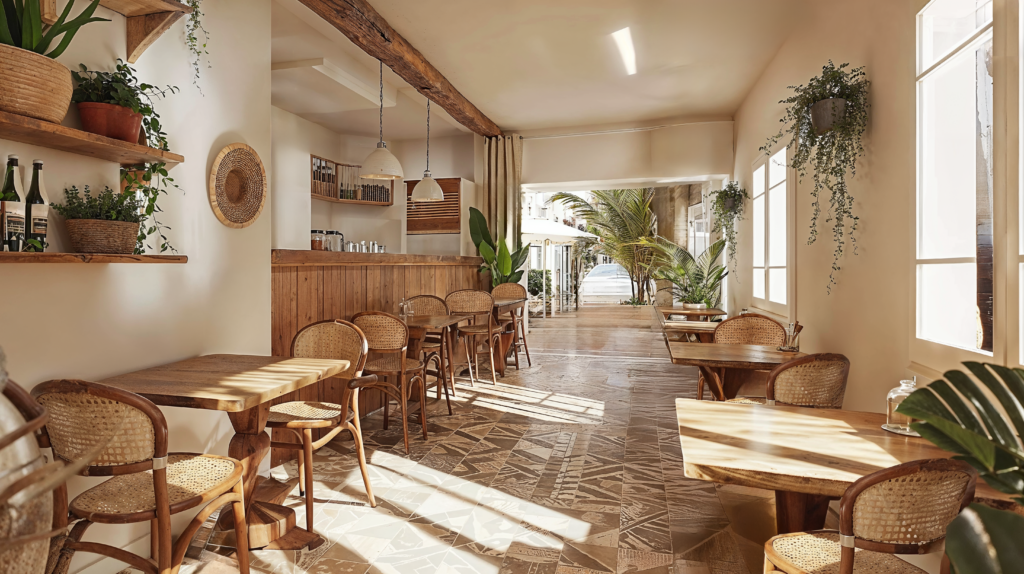
Libraries
Vaulted ceilings, arched windows, and stone accents give libraries a sense of timeless elegance. These features create serene spaces ideal for study and reflection.
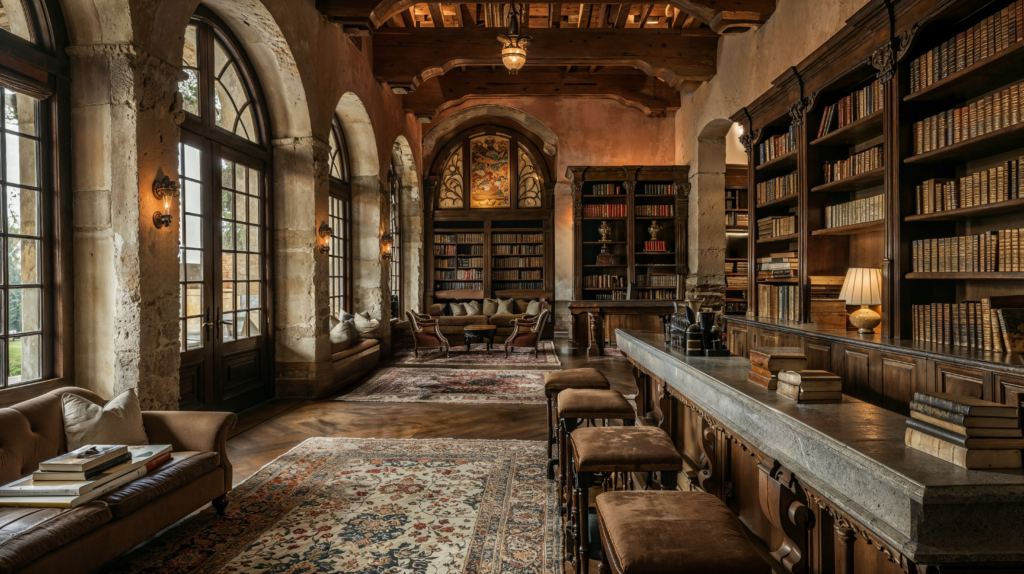
Antique Stores
Rustic plaster walls, wooden shelving, and ornate wrought iron details amplify the sense of history in antique stores. These elements provide a fitting backdrop for unique treasures.
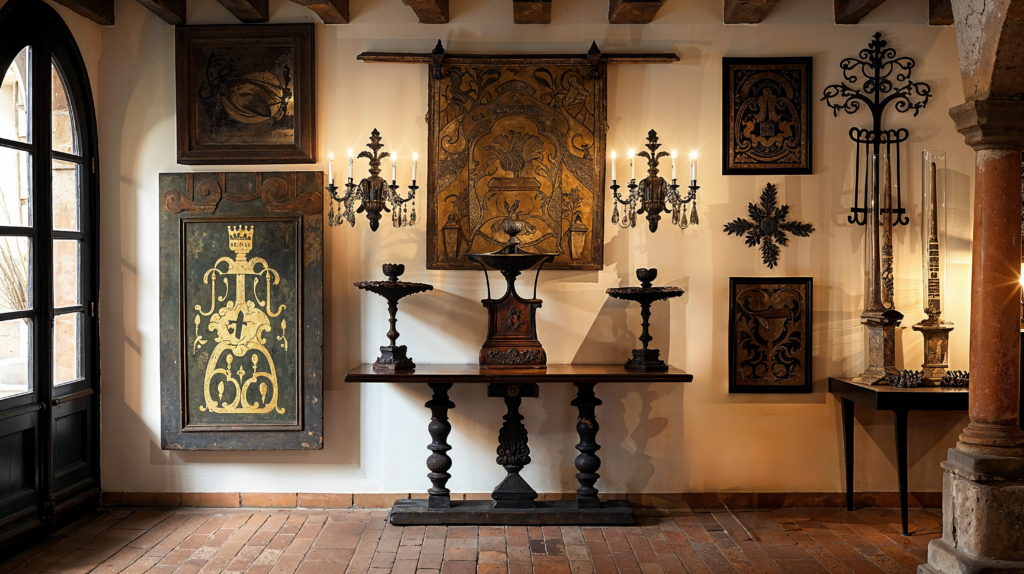
Train Stations
Warm, earthy materials soften transit hubs, while decorative tiles enhance wayfinding. Arched entryways and ample natural light create a welcoming atmosphere.
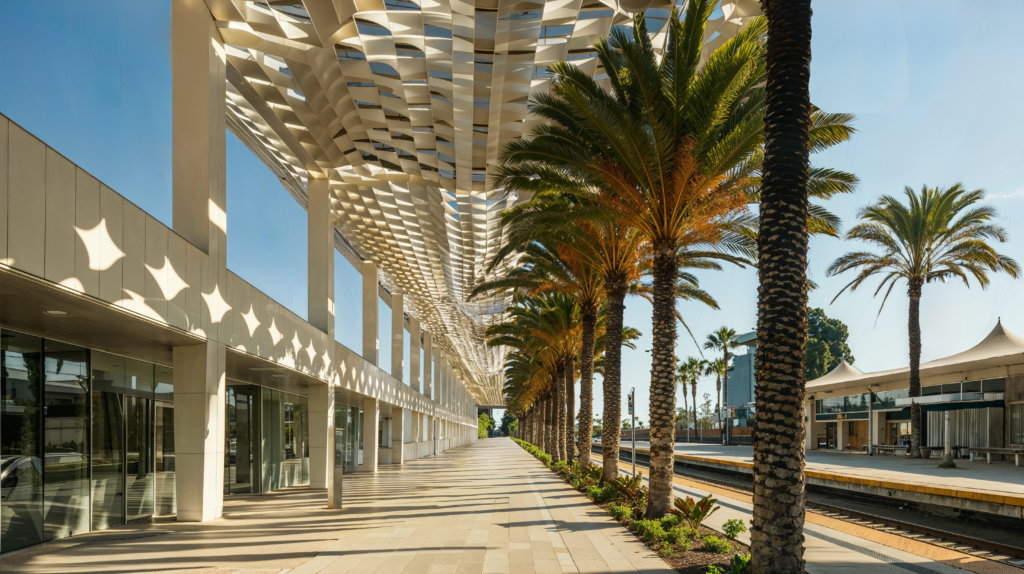
Boutique Clothing Stores in Mixed-Use Building
Neutral palettes and elegant finishes provide an understated yet refined backdrop for garments. Handcrafted tiles and rustic wood accents bring warmth to fitting rooms and displays.
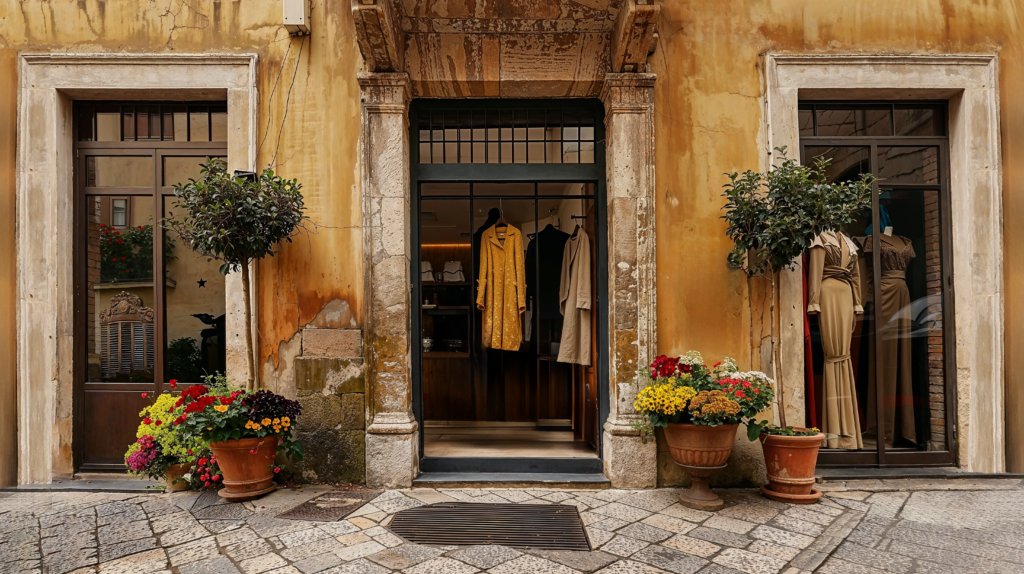
Residential
Mediterranean homes emphasize comfort and natural beauty. Courtyards, layered textiles, and open layouts promote relaxation, while handcrafted details like painted tiles add personal charm.
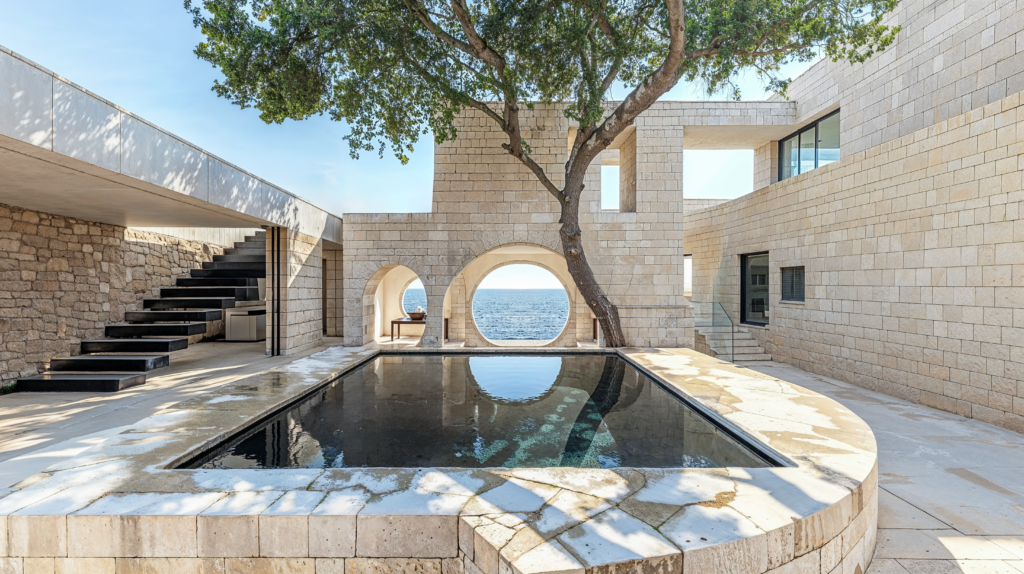
Mediterranean design’s balance of elegance, comfort, and practicality makes it an enduring choice for diverse spaces. By blending its timeless elements with modern functionality, designers can craft environments that are both inviting and inspiring—perfect for today’s lifestyles.
Looking for more Mediterranean design inspiration? Read our article on Mediterranean Foyer.





